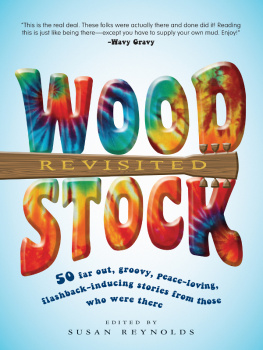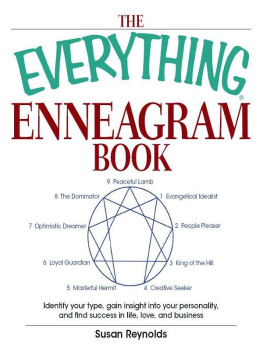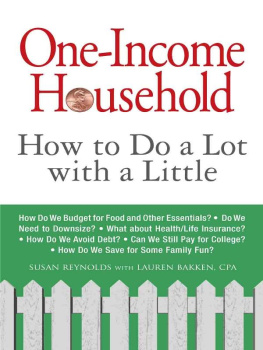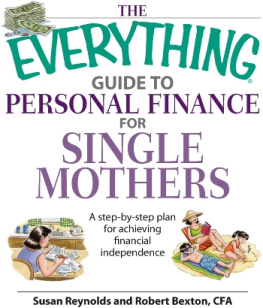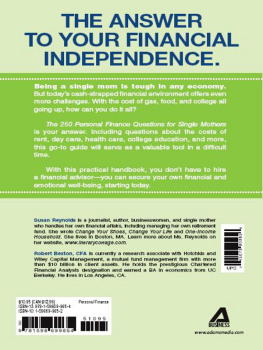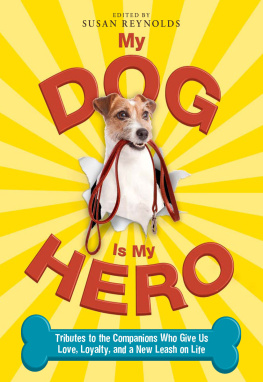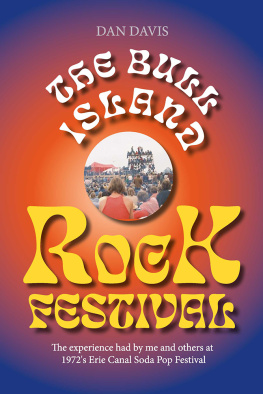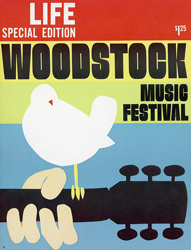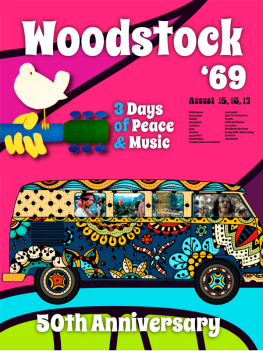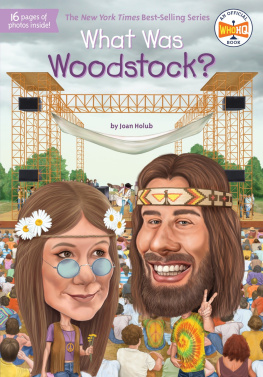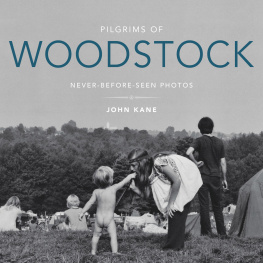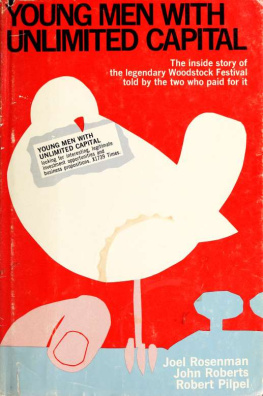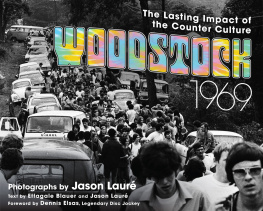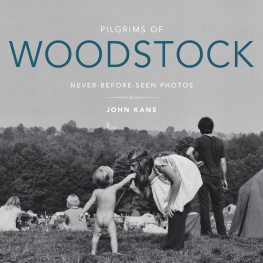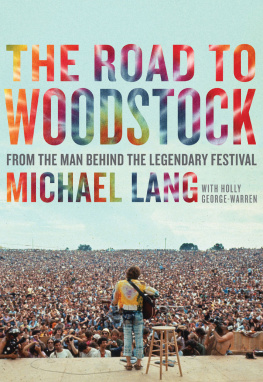
EDITED BY
SUSAN REYNOLDS

Copyright 2009 by Susan Reynolds
All rights reserved.
This book, or parts thereof, may not be reproduced in any form
without permission from the publisher; exceptions are made
for brief excerpts used in published reviews.
Published by
Adams Media, a division of F+W Media, Inc.
57 Littlefield Street, Avon, MA 02322. U.S.A.
www.adamsmedia.com
ISBN 10: 1-60550-628-1
ISBN 13: 978-1-60550-628-9
eISBN: 978-1-44051-983-3
Printed in the United States of America.
J I H G F E D C B A
Library of Congress Cataloging-in-Publication Data
is available from the publisher.
This publication is designed to provide accurate and authoritative information with regard to the subject matter covered. It is sold with the understanding that the publisher is not engaged in rendering legal, accounting, or other professional advice. If legal advice or other expert assistance is required, the services of a competent professional person should be sought.
From a Declaration of Principles jointly adopted by a Committee of the
American Bar Association and a Committee of Publishers and Associations
Many of the designations used by manufacturers and sellers to distinguish their product are claimed as trademarks. Where those designations appear in this book and Adams Media was aware of a trademark claim, the designations have been printed with initial capital letters.
This book is available at quantity discounts for bulk purchases.
For information, please call 1-800-289-0963.
I dedicate this anthology to the 400,000500,000 people who attended Woodstock, as well as the promoters, the performers, and all the people behind the scenes. We came together in peace and harmony and showed the world that love is possible, in the worst conditionsexcessive heat, humidity, thunderstorms, and downpours, when exhausted, uncomfortable, hungry, thirsty, mud-caked, and stranded. I am grateful to you all for sharing that experience and for proving that masses of like-minded people can create a positive experience that affects the entire world. It mattered, we mattered, and it was far, far more than a huge party. That many people crammed together in lousy conditions could have turned on each other and created chaos and disaster. Instead, we endured, helped each other, and chilled. Sure, drugs were rampant, but I was there, I was drug-free the entire time, and I saw thousands and thousands just like meordinary kids in an extraordinary situation. So, to my brothers and sisters (literal and figurative), I express my camaraderie using the vernacular of the timespeace, man!
Everyone all over the world will be reading
about you tomorrow.
Announcer at Woodstock
contents
Susan Reynolds
Lisa Law
Jeremiah Horrigan
Louis Mello
John M. DeVoe
Alan Kolman
Colleen Plimpton
Michele Kadison
Sandy McKnight
Michele Hax
Philip Pisani
Francis Dumaurier
Louis S. Denaro
Rozanne Reynolds
Jeff Blumenfeld
Sandra Johnson
Bob Brown
John Northlake
Geraldine Goldberg
Michele Starkey
Jim Edwards
Yerucham Teitelbaum
Anita Lopez Winder
Scott A. Munroe
Rev. Prem Anjali, PhD
Robert Paul Blumenstein
Vinny Stefanelli
Robert Rohloff
Barbara L. Heller
Valerie Ptak LaMont
Peter McAlevey
Catherine Hiller
John Bianco with Jon Jaboolian
Brian King
Janine Fleury
Michael Sciulla
Linda W. Hamilton
Phil Vinall
R.G. Nourse
S.K. List
Pam Crowe-Weisberg
Edward D. Christensen
Bob Dickey
Barbara Greenough Acker
D. Dina Friedman
Peter Faur
Richard Gladstein
Phaedra Greenwood
Glenn Nystrup
Dixon Hearne
acknowledgments
I offer gratitude to my sister Rozanne Reynolds for letting her baby sister stayrent-freein her apartment that crazy summer of 1969, and to my brother Roy Reynolds who hitched up from Manorville, Pennsylvania to go to Woodstock and helped me feel safe in that impossibly huge crowd. Roy has been a musician since age fourteen, has a garage filled (literally) with at least 4,000 albums carefully stored on shelves, and spent years verifying which groups we saw at Woodstock and which ones we only thought we saw. (Blame it on the movie, which we must have watched a dozen times over the years.) I would also like to thank Tom Kaczmarek, who ferried us there and back and who later fathered Michele and Chris, whom we adore. I would also like to offer gratitude to my brother Jim Reynolds, who did not attend Woodstock with us, but who deserves accoladesand has always had our respectfor serving his country in Vietnam, and who also sustains a deep love for music, especially the blues.
At Adams Media, Id specifically like to thank Karen Cooper, Paula Munier, Phil Sexton, Wendy Simard, Brendan ONeill, Matt Glazer, Beth Gissinger-Rivera, and everyone else from production to sales for their enthusiasm and support. Thank you for offering us this opportunity to record our historical accounts of that remarkable event. I also sincerely thank the contributors for taking us all on this unique journey and for chronicling an important time in our nations history. I loved your stories and am proud to be shoulder-to-shoulder with you once again. And finally, as always, I thank my beloved children, Brooke Sandon Aved and Brett Allen Aved, for joining me on this incredible journey called life.
introduction
In the summer of 1969, America seemed divided, corrupted, and on the verge of disintegration. Peace demonstrations, civil rights marches, and riots had filled our streets with thousands of disgruntled souls, each seeking to break through barriers. Thanks to the draft, we had 500,000 soldiers in Vietnam, which led to a proliferation of anti-war demonstrations at colleges and universities across the countryand in Europe. An organization called Students for a Democratic Society had staged sit-in demonstrations and thereby seized control of buildings on the Columbia University campus.
In 1968, two beacons of hope and inspiration, Martin Luther King and Robert F. Kennedy, had been assassinated, leaving young Americans feeling betrayed and rebellious. After Kings death, race riots raged so violently in more than 100 cities, 65,000 National Guard troops were required to quell the disturbances. Later that same year, in Chicago, during the Democratic convention, police attacked and bloodied anti-war protestors.
Drugs were rampant, with Timothy Leary encouraging youthful legions to turn on, tune in, and drop out. The National Organization for Women was encouraging young women to burn their bras and demand their equal rights. Alas, the 1967 Summer of Love had gone so sour that Richard Nixon won the presidential election. Is it any wonder then that the Woodstock festival, touting three days of peace and music in 1969, became one of the most unique and legendary events in world history? Widely regarded as one of the greatest moments in popular music history, it was listed in Rolling Stones 50 Moments That Changed the History of Rock and Roll. Because 186,000 advance tickets were sold, organizers had anticipated that approximately 200,000 people would show up, but so many came, the fences were torn down and all roads into and out of the area became log-jammedthe New York State Thruway was even closed temporarily due to extraordinary traffic.
Next page
